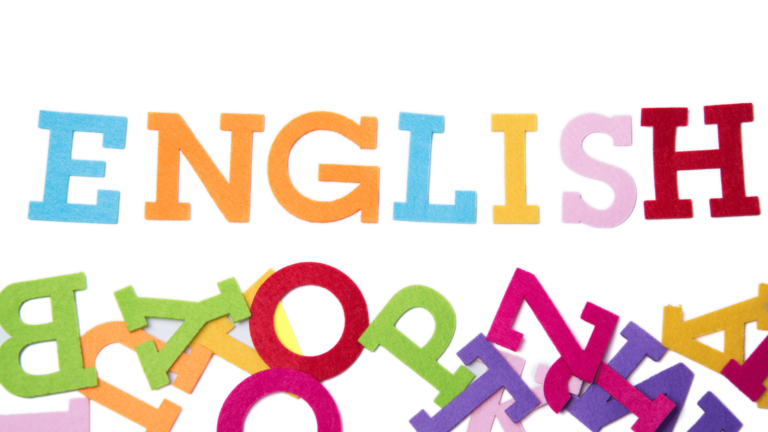The Defeat of Germany: 3 SEQ Samples
The defeat of Germany is a straightforward question. Most of the questions revolve around the question that which factor was more important. Was it Hitler’s decisions that caused the German army to make important strategic errors? Or were the Americans just too strong? You can find a downloadable file in the box below.
For O levels, we are not looking for a conclusive answer to this question. As with my previous blogs, use the answers here as a guide to answering questions.
1. “Hitler’s invasion of the Soviet Union in June 1941 was the main reason for Germany’s defeat in World War 2.” How far do you agree with this statement? Explain your answer.
(P) I agree with this statement that Hitler’s invasion of the Soviet Union in June 1941 was the main reason for Germany’s defeat in World War II.
(E) The invasion of the Soviet Union resulted in Germany fighting a war on two fronts, as they were still fighting the British on the Western Front when he opened up the Eastern Front against the Soviet Union.
(E) This prevented Hitler from concentrating his efforts on a single theatre of war, which caused him to overstretch his army and resources, which prevented him from achieving decisive victories on either front. The invasion of the Soviet Union also gave the British time and space to reorganise its resources and military force and obtain more help from the Americans to continue fighting the Germans.
(L) Thus, the German invasion of the Soviet Union was a disaster for the German war effort. It weakened Germany’s military forces and its ability to achieve decisive victories on both fronts, which eventually caused it to be defeated.
(P) However, the invasion of the Soviet Union was not the main reason for Germany’s defeat, as the entry of the USA into the war on the side of the Allies was the more important reason for Germany’s defeat.
(E)When the USA entered the war after the Japanese attacked Pearl Harbor in Dec 1941, they contributed vast resources and human resources to the Allied war effort. The USA was the world’s largest producer of goods and was thus able to convert their factories for military production at a faster rate than that of the Axis Powers. They also sent large numbers of American military personnel to aid Allied military campaigns. These not only solved Allied problems of military shortages but also bolstered the Allied war machine.
(E) When Hitler declared war on the USA, mistakenly thinking that the USA would focus their war effort on fighting Japan in the Pacific, Germany had to fight a formidable enemy. The USA led the Allies in bombing German synthetic oil plants and oilfields weakened Germany’s resources. As a result, the German war machine almost came to a halt, making it more difficult for them to sustain the war effort, leading to their eventual defeat.
(L) Thus, the entry of the USA into the war was more disastrous for Germany than its invasion of the Soviet Union. Hence, it was the main reason for their defeat.
2. “American supremacy, rather than German miscalculations, was the main reason for Germany’s defeat during World War 2.” How far do you agree with this statement? Explain your answer.
(P) When Japan bombed Pearl Harbor in December 1941, America formally entered World War II and was primarily responsible for Germany’s defeat.
(E) America made two significant contributions. For example, the USA contributed vast industrial capacity and workforce. Factories could be converted into war output, such that the US to help solve the problem of Allied military shortages. Also, the US had large reserves of human resources, which contributed to forces against Axis powers. The USA also collaborated with the Allies in military strategies.
(E) For the Europe-first plan, Americans helped in planning, including essential tactics to help Allies achieve control of sea and air so that allied convoys could supply the Allies with weapons and troops. Necessary resources could not reach Germany and led to tactical success against Germany. The USA also helped in bombing campaigns starting in 1943 of Germany, and it eventually led to a decisive Allied Victory.
(L) USA involvement helped to bolster the Allied war efforts, enable Allies to achieve military superiority over German forces, contributing to Allied Victory and Germany’s defeat.
(P) Hitler was also responsible for Germany’s defeat. He took on the role of military leadership for Germany. His mistakes cost Germany,
(E) For example, he ordered the bombing of British cities instead of British airbases. This mistake allowed the British airforce to continue fighting. At the same time, he also micro-managed war production, giving preference to certain weapons while denying other potentially war-winning weapons for German Service (e.g. the ME-262 fighter). Besides that, he made the mistake of invading the Soviet Union and then declaring war on the US after the Japanese attacked Pearl Harbor in December 1941.
(E) Hitler limited Germany limited war resources while allowing his enemies to ally together against Germany. As a result, the German war machine struggled, fighting a war on two fronts.
(L) Hence, Hitler’s mistakes contributed to Allied Victory.
(P) Besides that, Nazi Germany also lacked essential resources to fight a protracted war, especially with the shortage of petroleum.
(E) Germany’s war strategies relied extensively on mobile warfare, which required vast amounts of oil and petroleum-related products for their war machines. Germany had little reserves of these supplies.
(E) By 1943, however, the Allies began to bomb Germany’s stores of coal, synthetic oil plants and oil field (e.g. Ploesti oilfields in Romania) and put out of operation. This operation severely weakened Germany’s war machine. Moreover, there were insufficient workers to produce the weapons needed. Germany suffered from slow and inefficient armament production.
(L) Hence, the shortage of petroleum played a part in the Allied victory.
(J) American supremacy provided a crucial contributing factor for Germany’s defeat. Their vast resources and military enabled the Allies to achieve military superiority over the German army machines. Although its weaknesses and miscalculations hampered the Germans, it was ultimately American supremacy that provided the necessary resources for Allies to guarantee Allied Victory against a weakened Germany.

3. “Hitler is to be blamed for the defeat of Germany in World War 2.” Do you agree? Explain your answer.
(P) I would agree that Hitler is to be blamed for Germany’s defeat in World War 2 as he was responsible for starting a 2nd front that was to overstretch the German army and lead to its eventual defeat.
(E) Hitler chose to invade the Soviet Union on 22 June 1941 while still engaging in a war on the Eastern Front with Britain. This decision opened up the Eastern Front, and his army was soon overextended as the USSR did not capitulate as quickly as Hitler had envisioned.
Instead of ending the war by the autumn of 1941, the German army soon fought in the bitter winter cold on the Eastern Front as the USSR stood firm. The German army was ill-equipped for a long drawn out siege battle. That provided the opportunity for the Soviet Army to regroup, despite massive losses, and encircle the German forces, forcing the 3 million German soldiers on the Eastern Front to surrender.
(E) This was a significant blow to the German war effort, and it severely weakened the German forces as they had invested some of their best troops in the battle against USSR.
(L) Hence, I blame Hitler for German defeat as Hitler’s decision to invade the Soviet Union decimated the German army and led to the eventual Allies’ victory.
(P) I would disagree with the statement as America’s involvement was crucial for the German defeat in WW2.
(E) With the USA’s entry into the war, there was an infusion of ground troops, weapons and equipment. In addition, they collaborated in devising strategies against the Axis Powers. The USA was the world’s largest producer of goods, and they were able to convert its factories for military production. Eleven million American soldiers poured into the war. The entry of the American Air Force allowed the Allies to control the skies. The US Navy escorted resources from Britain to Europe, limiting the impact of the German U-boats that were sinking the British support vessels.
(E) It is clear that the entry of the USA brought about a significant shift in the dynamics of the war, and the Allies were much better resourced and led to Allied dominance of the air and sea.
(L) Thus, I’m afraid I have to disagree with the statement as the entry of the USA was vital in ensuring Allied superiority over the Germans that eventually led to German defeat.
(J) In conclusion, I would disagree with the statement. Hitler’s decision to invade USSR brought a European power into the war, but it was a power that Stalin’s rule had weakened. In the initial stages of the Nazi invasion, the Red Army suffered multiple defeats and suffered massive losses before overcoming the German army.
On the other hand, the US Army was well-trained and well-equipped. Their economy was doing well and had the means to fight a long and sustained war with Germany. Hence, I would disagree with the statement as the entry of the USA was far more impactful than the entry of the USSR, highlighting the entry of the USA as the critical factor that led to German defeat. As the decision of the USA to enter the war was not within Hitler’s control, he should not be blamed for German loss.
Conclusion
This is part of the History Structured Essay Question series. For O level History Elective information, you can find it here. You can download the pdf version below.
Other chapters can be found below:
- Treaty of Versailles
- League of Nations
- Rise of Stalin
- Stalin’s Rule
- Rise of Hitler
- Hitler’s Rule
- Reasons for World War II in Europe
- Reasons for World War II in Asia-Pacific
- Reasons for the Defeat of Japan
- Reasons for the Cold War
- Korean War
- Cuban Missile Crisis
- Reasons for the End of the Cold War

Critical Thought English & Humanities is your best resource for English, English Literature, Social Studies, Geography and History.
My experience, proven methodology and unique blend of technology will help your child ace their exams.
If you have any questions, please contact us!







